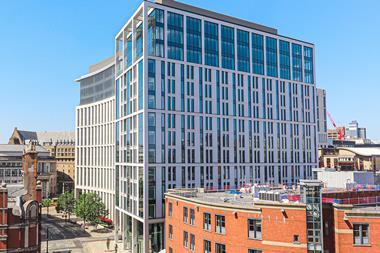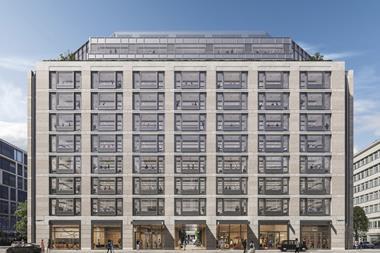The UK business sector has had a lot to deal with over the past two years: ongoing disruption from a global pandemic, a widespread shift to flexible working and a fierce battle for talent.

Understandably, building connections and maintaining company culture have been huge challenges during this period and, if anything, it has taught us the value that face-to-face interaction brings.
Despite the outcry at the start of the pandemic that the office was ‘dead’, the opposite has been proved true with teams showing a clear desire to return to a physical workplace.
Findings from our recent Powered by People report, which explores the challenges around employee retention and attraction, show just how important a physical workplace is to boosting employees’ social lives and creating meaningful connections.
We asked what people missed most about going into the office during the pandemic, and interestingly ‘socialising with colleagues’ came out on top. It is important for us to remember that lifelong connections, friendships and even relationships are formed at work, and it is imperative that business leaders recognise this and embrace it. By ensuring teams have the best experience at work, companies will be rewarded with a happy, loyal and productive workforce.
Working styles
Encouraging employees back into the office hinges on teams feeling comfortable, and after long periods of solo working from home it is important to cater for different working styles to help offer more choice and autonomy to teams and individuals.
Just as we have moved past the days of isolated cubicle working, we now need to go beyond disconnected full-time remote working. Specific social areas are key for today’s workplace, with breakout spaces, tea points and dedicated relaxation areas becoming the norm. We need to ensure teams are catching up on the social connections they have missed, and that the office is a place that brings people together.
We also need to adapt to the different ways in which people want and need to work by introducing areas such as specific quiet zones and collaborative hubs, which give people a choice depending on the task at hand.
It is all about providing a holistic, agile and flexible experience for each individual. With hybrid working on the rise, the office should adapt to reflect this.
While the office is hugely important for all workers, its prominence for those at the start of their careers cannot be overlooked. Younger employees and graduates need to be able to learn and grow under their senior, more experienced colleagues, and this can be difficult to do remotely. Working together in-person is an excellent way to develop skills and confidence and helps teach valuable social skills.
The office is the expression of a company and its culture, a destination that can instil pride for all team members and give them a sense of community. I am also a firm believer in the office being the next step in education and that the lessons learned from in-person working cannot be emulated in a purely digital world. It is vital the next generation are given the right environment to learn in.
Organisations are now seeing the true value of the office – a space where people can learn and develop together, somewhere they can collaborate and truly enjoy. Business leaders who understand this and implement steps to nurture workspaces that support this will soon reap the benefits of a happy, motivated workforce.
Leeson Medhurst is head of strategy at Peldon Rose
































No comments yet